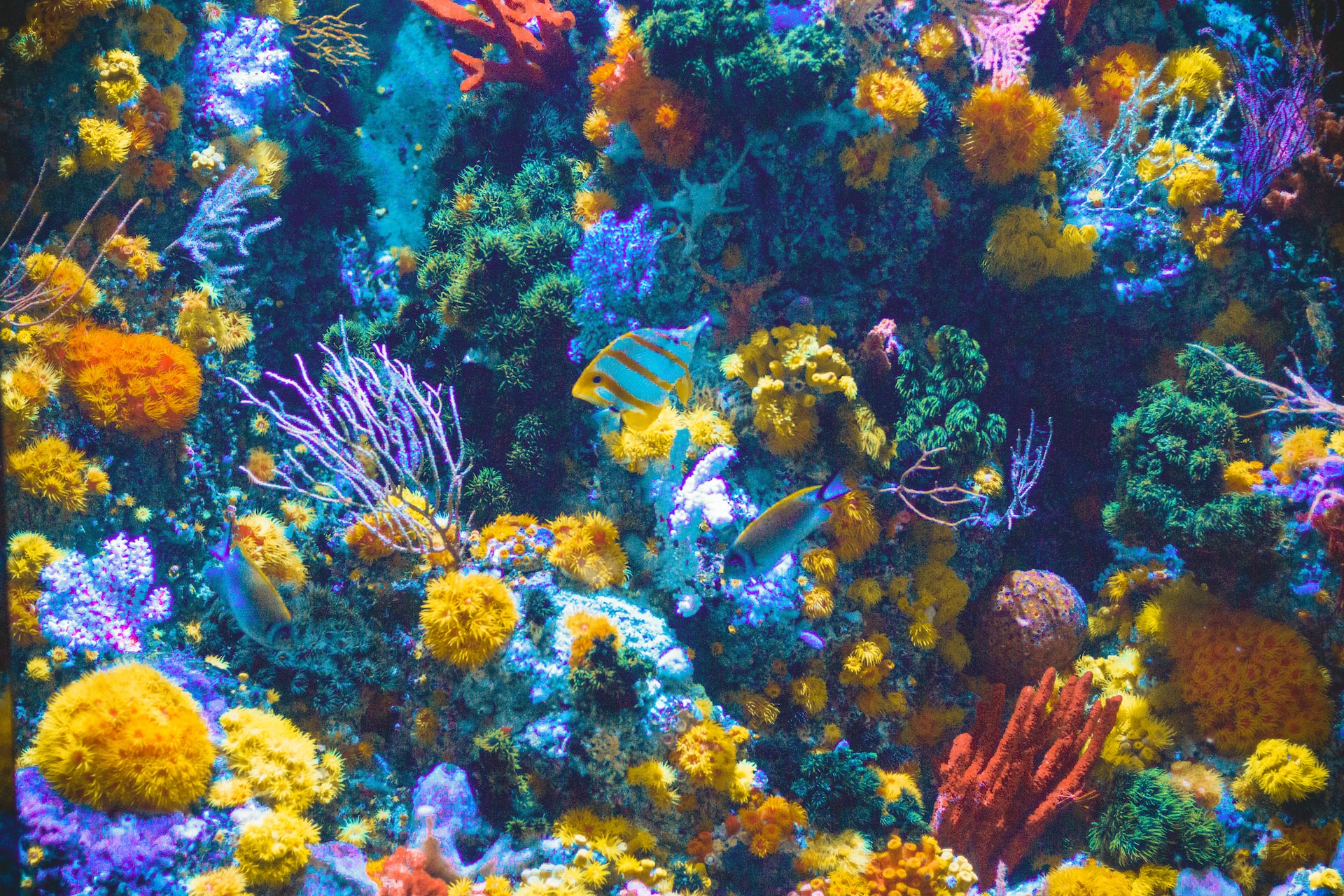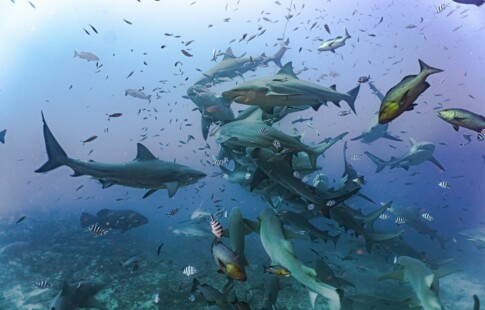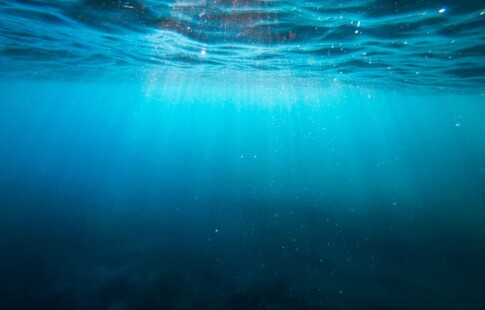
Why Are Coral Reefs Important?
We are reader-supported. When you buy through links on our site, we may earn affiliate commission.
Coral reefs are one of the world’s most exquisite and ecologically complex ecosystems. Although they cover under 1% of the earth’s oceans, they provide habitat to nearly 25% of marine wildlife, including 4,000 fish species that depend on coral reefs for food and protection throughout their life spans.
Unfortunately, global warming, pollution, coastal development, and overfishing have led to widespread coral die-offs in the last few decades. This poses a significant ecological risk for our oceans and an economic and health crisis for humankind.
Coral reefs are essential for several reasons, deeming them worthy of protection at all costs. Here is everything you need to know about why coral reefs are necessary to the planet.
Is Coral Really an Animal?
One might assume coral reefs are made up of colorful rocks or underwater blooms. Seeing that they root themselves on the sea floor, it’s not uncommon for people to make that mistake.
However, corals are very much alive and are, indeed, animals.
Looking at a coral, you’ll likely notice a bunch of tentacles resembling sea anemones. These tentacles belong to animals called “coral polyps,” an invertebrate that measures between one and 10 millimeters (mm) and occurs in multiples of six.
Polyps eat and reproduce — sexually and asexually — just like any other species. Because polyps are naturally soft-bodied, they use seawater limestone — calcium carbonate (CaCO3) — to construct their hard exoskeleton for protection. When thousands of polyps congregate, they become known as coral colonies.
Throughout the years, coral bleaching has caused significant damage to reefs, depleting the polyps’ nutrient sources and imposing dire ecological conditions. A mere fluctuation of 2° Fahrenheit in ocean temperatures is enough to cause mass bleaching events and coral die-off.
The implications of these occurrences were most noticeable during the 36-month bleaching event between 2014 and 2017. It caused extreme heat stress to 51% of the world’s coral reef ecosystems.
Scientists indicated it had been the worst bleaching event Hawaii, Guam and American Samoa had ever experienced, while 98% of the corals in the South Pacific died. Australia’s Great Barrier Reef also lost about 30% of its coral reefs.
Fortunately, recent studies imply that not all hope is lost for coral reefs. One research team that included the late Dr. Ruth Gates — former director of the Hawaii Institute of Marine Biology at the University of Hawaii and president of the International Society for Reef Studies — discovered 38 coral reef oases.
Coral reef oases consist of coral communities that have resisted or recovered from bleaching events, predation, and hurricane impacts — a critical finding to identify improved management strategies and policy frameworks for coral recovery.
4 Reasons Coral Reefs Need Protection
Coral reefs are critical for safeguarding coastlines, supporting economies, and even ensuring public health and safety. Here are four reasons why it’s necessary to protect these precious ecosystems.
1. Reduce Coastal Damage
Currently, 40% of the global population lives and works within 100 kilometers (km) of the shoreline, placing undue pressure on coastal ecosystems.
Healthy corals protect these coastal regions by absorbing 97% of wave energy and preventing soil erosion and loss of life and property during significant storm surges, tsunamis, currents, and other weather-induced forces.
Research suggests that coastlines surrounded by coral reefs are usually more stable than those that aren’t.
2. Protects Endangered Species
Naturally, coral reefs provide a vital spawning ground and nursery for thousands of marine species. However, healthy coral reefs also protect species listed as threatened and endangered.
About two-thirds of butterflyfish have disappeared from reefs due to intensifying bleaching events and a lack of food to sustain their populations.
The 400-pound humphead wrasse, nicknamed “king of the coral reefs,” has also significantly declined due to overfishing in unprotected tropical waters. While most countries have banned their trade, Indonesia allows the exportation of 2,000 humpheads from its reefs annually.
Healthy coral habitats with conservation laws in place ensure marine species thrive, even in the most detrimental ecological circumstances.
3. Hold Economic Value
Coral reefs support various economic activities, from tourism to commercial fishing. It’s estimated that these species, directly and indirectly, contribute $36 billion to the global tourism economy every year.
Aside from visitors embarking on scuba excursions to lay their eyes on the last few coral habitats, reef species like parrotfish play a role in forming beautiful stretches of white, sandy beaches.
Yes, sand is essentially parrotfish poop after they consume coral — and one parrotfish generates 840 pounds of sand annually.
Additionally, nearly half of the U.S. commercial and recreational fisheries depend on coral reefs to sustain fish populations, contributing over $100 million per year to the nation’s economy.
Globally, coral reef fisheries are worth $6.8 billion and deliver essential income, food resources, and recreational benefits in developing countries.
4. Promising for Future Medicines
The medical field considers coral reefs critical in developing groundbreaking treatments.
Medical researchers have explored coral organisms to create medicines for various cancers, heart conditions, bacterial infections, arthritis, Alzheimer’s disease and aging cells.
For decades, coral skeletons have also shown promise for bone repair since their biological and chemical properties mimic those found in humans.
Scientists predict that the global population will reach 9.7 billion by 2050 — meaning that the prevalence of severe medical conditions and the spread of disease will likely worsen. If coral reefs hold untapped potential for pharmaceutical discoveries, their very existence becomes vital for public health.
Why Are Coral Reefs Important? Protection and Providing
There’s no denying that coral reefs hold critical ecological, economic and social benefits. As climate change, pollution, and human activity increase global warming and drive coral die-off, our greatest interest is to protect these species.
Share on
Like what you read? Join other Environment.co readers!
Get the latest updates on our planet by subscribing to the Environment.co newsletter!
About the author

Steve Russell
Steve is the Managing Editor of Environment.co and regularly contributes articles related to wildlife, biodiversity, and recycling. His passions include wildlife photography and bird watching.





